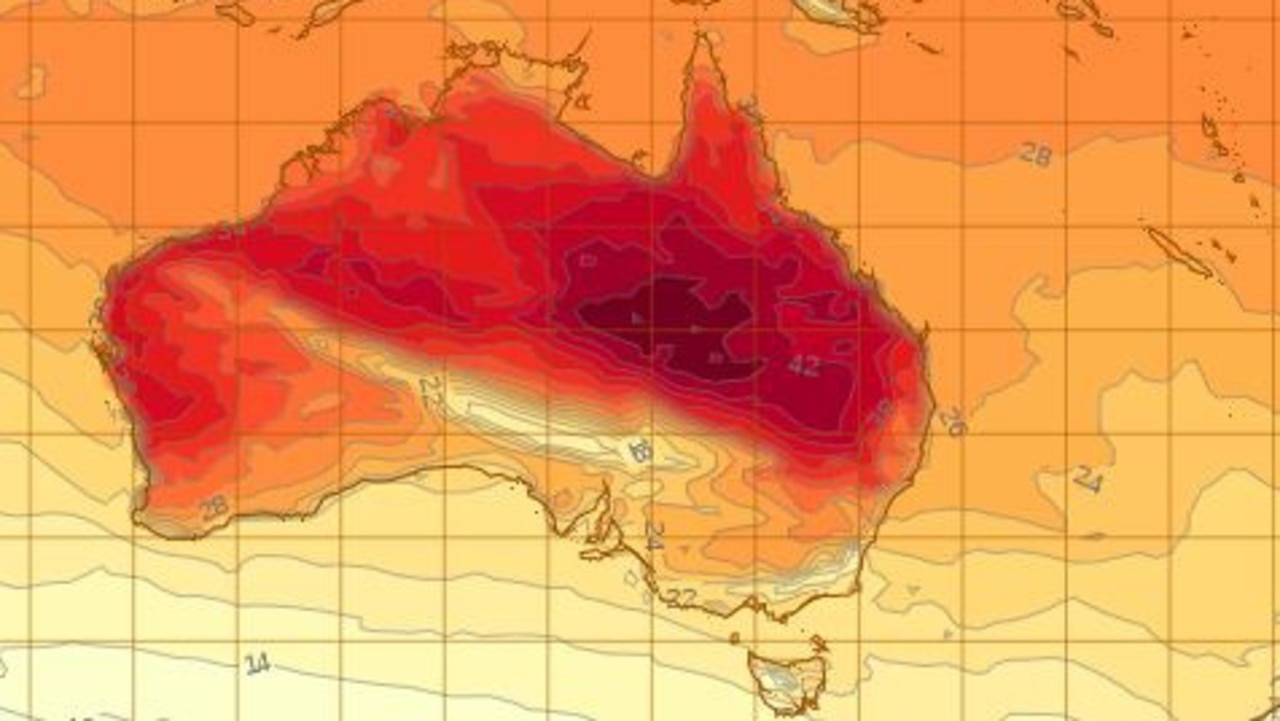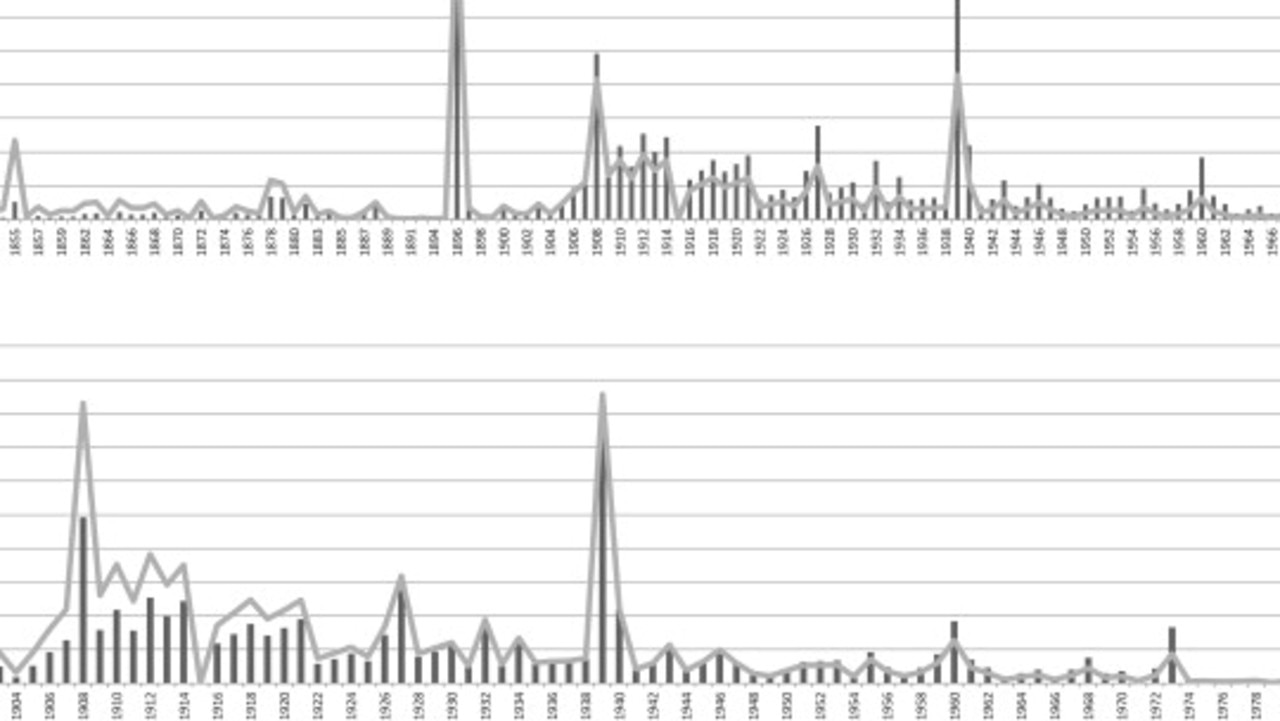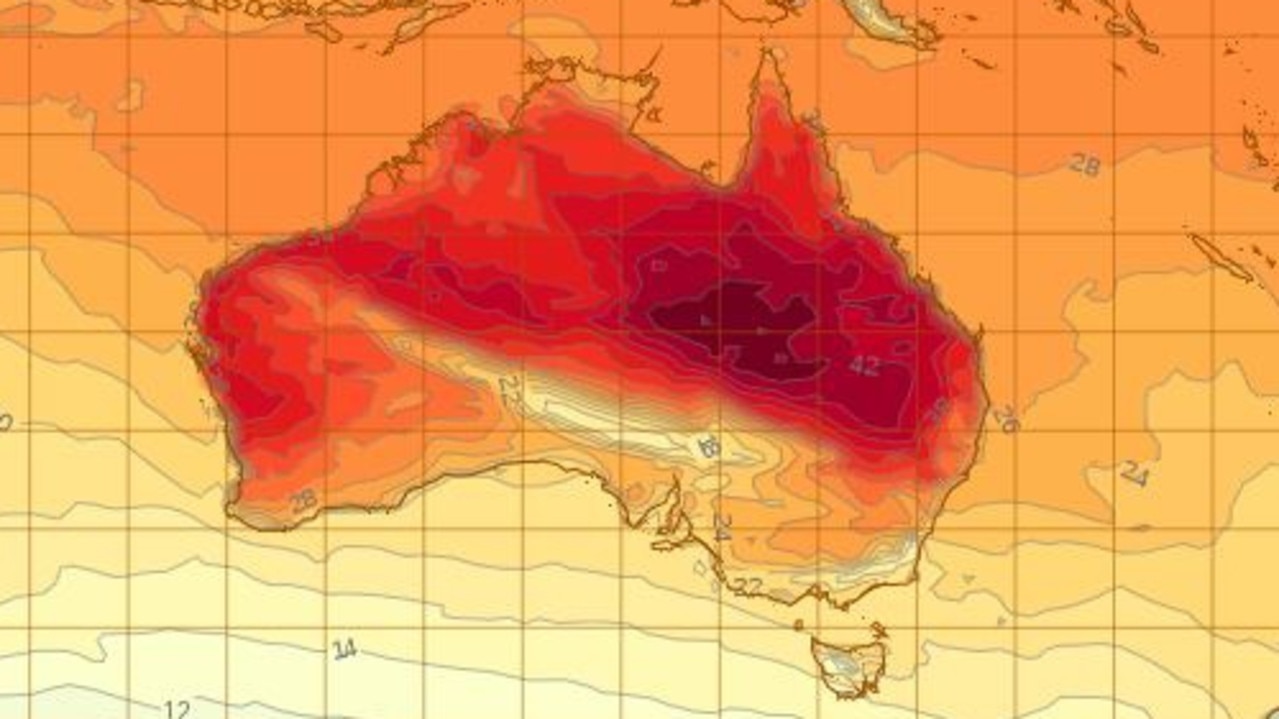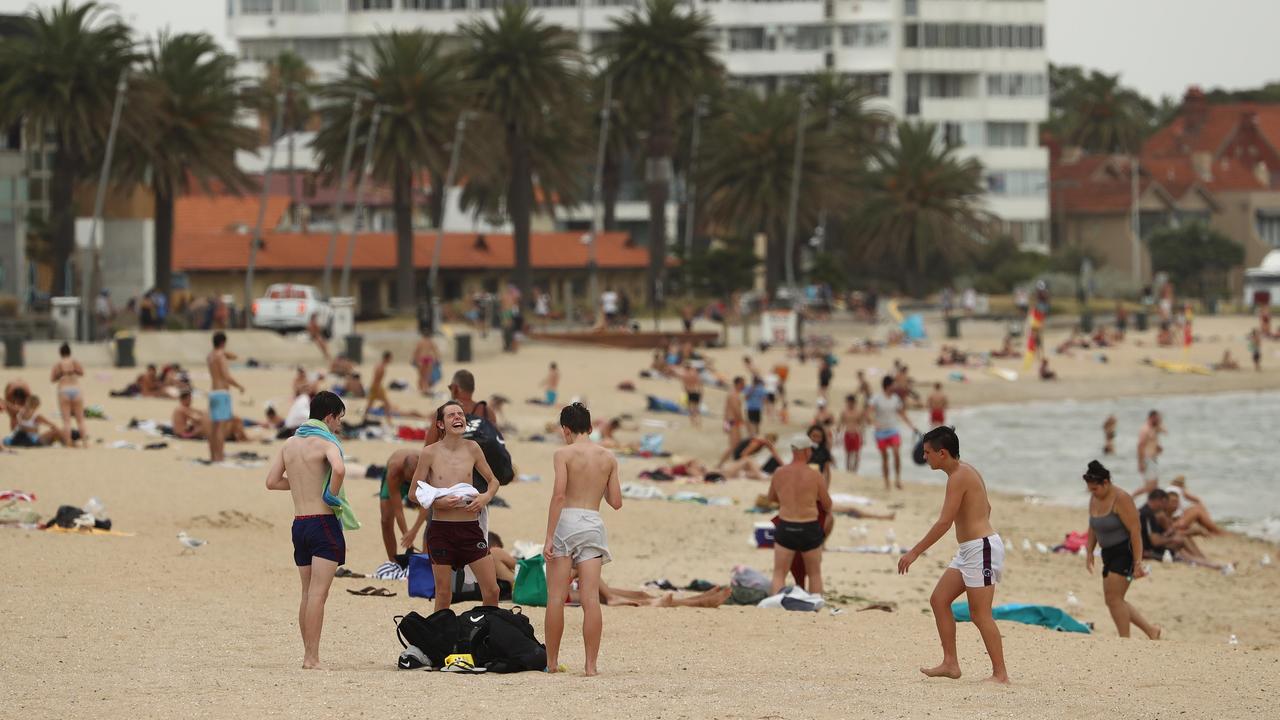January 27 is Australia’s worst day for heat-related deaths, statistics show
Far more Aussies die on one day of the year due to our scorching summers than any other, and grim statistics reveal who’s most at risk.

Number-crunching boffins have take the grim figures showing how many Aussies die in our sweltering summers since 1850 and revealed January 27 is our deadliest day.
Temperature records were toppled around the country this week thanks to a blistering heatwave, and Australians are being told to be heat smart as they go into the Australia Day long weekend.
If that sounds like a familiar message, it’s probably because, according to Risk Frontiers’ historical analysis,January is a particularly bad month when it comes to heat-related fatalities.
Risk Frontiers’ general manager and risk management expert Andrew Gissing told news.com.au the majority of major, deadly “heat events” between 1850 and 2010 all occurred in January.
The worst of these took place in 1896, 1908, 1939, 1959 and in 2009 — when there was a worrying total 432 fatalities in a January heatwave — which spread over into February.
“Looking at the statistics, January is clearly a month where there are more deaths than any other,” Mr Gissing said.

“The peak day is January 27 and that just so happens to coincide with Australia Day (weekend) — and it could be because there are a lot of people spending time outside and heatwaves have reached their peak.”
He said the statistics show you’re far more likely to die outdoors during the oppressive summer heat — which kills far more people than any other natural disaster.
Over the past 50 years, the Risk Frontiers statistics show, out of all Aussie heats deaths, 63 per cent were people spending time outdoors.
In total, 20 per cent had been working and 30 per cent had been just enjoying themselves.
However, certain groups of people were far more likely to fall victim. Elderly people made up a whopping 87.3 per cent of all deaths, 90 per cent of people had a medical condition and six per cent were under age of nine.

Mr Gissing said research also shows heat has taken a major toll on the Aussie economy — mainly due to widespread absenteeism taking a toll on retail and dining industries and lower productivity — mostly affecting physical labourers, manufacturing and those working outdoors.
“Farming can also take a major hit as we’ve seen crops of broccoli and capsicums damaged in recent years,” he said.
“But we know some businesses do better, for example those selling cold drinks. And, if you’re selling ice cream down at Bondi Beach, you’d be very unlucky not to sell out.”
He also added that Aussie heatwaves are projected to increase in frequency with climate change.
It comes as Adelaide’s mercury reached a record high of 46.6C yesterday — toppling a heat record from 1939 — and more than 145,000 customers are without power across Victoria as the state swelters through extreme heat, putting strain on the electricity system.

Sydney is also set to sizzle over the long weekend too and NSW Health has issued a reminder to residents to keep cool.
NSW Health director of environmental health Richard Broome said heat puts a lot of strain on the body and can cause dehydration, heat stress and heat stroke. It can also make underlying health conditions worse.
“It’s going to be really hot this Australia Day weekend so we are urging people to be cautious,” Dr Broome said.
“Whether you are headed to the beach, a BBQ, music festival or just relaxing with friends and family at home, it’s worthwhile remembering to take a few easy precautions.
“If you can, try and avoid being out in the hottest part of the day and make sure you drink plenty of water.
“What’s really important though is to think about those who may be vulnerable in the heat, such as elderly relatives, friends and neighbours, and try and telephone or call in on them to make sure they are OK.”
Welcome #VicCoolChange has moved through the CBD #melbourneweather #melbweather #vicweather #melbourne's temperature fell 12°C in 7 min. Relief for northern &eastern parts of #Victoria tonight, but the far NE unfortunately will have to wait until Saturday. https://t.co/NzSOfF0Gvg pic.twitter.com/isSTLWdahm
— Bureau of Meteorology, Victoria (@BOM_Vic) January 25, 2019
In Victoria,a spokesman for VicRoads confirmed to news.com.au that about 100 traffic lights in Melbourne and Geelong were not operating at the moment because of power supply issues.
“We’re working with the power companies as to when we can get power supply back in those areas,” he said. “Some come back on but then go out in other areas.”
The good news is a cool change has already started to swept through parts of Melbourne and temperatures have now dropped to about 27C in the city.
“It dropped about 15 degrees in the space of 15 minutes,” Bureau of Meteorology duty forecaster Chris Godfred told news.com.au.
Not every area has cooled yet though with those in the outer suburbs still experiencing temperatures above 40C.
In South Australia, the mercury rose to 49.5C in Port Augusta — making it the fourth hottest temperature ever recorded in the state.
The town was one of more than 20 locations to experience record-breaking highs, others including Ceduna at 48.6C, Port Pirie and Whyalla at 48.5C.
South Australians will get some relief in the form of a cool change today when a maximum of 31C is forecast for Adelaide.
Top tips to keep cool during the heatwave:
• Stay hydrated — make sure you drink lots of water
• Stay indoors — close windows and curtains/blinds; use fans and/or airconditioning if possible, even if it is only in one room
• Minimise physical activity — if you need to exercise or work outdoors, do so in the early morning or evening
• Check on vulnerable friends, relatives and neighbours — give them a call or pop in to make sure they are coping with the heat
• If you feel faint or affected by the heat — call 000
• Festival goers — drink plenty of water, take regular breaks from dancing in chill-out spaces and shaded areas, seek medical help if feeling unwell and look out for your friends
• People with respiratory conditions — staying indoors will reduce the risk from ozone; people with asthma should follow their action plans and carry a reliever puffer with them
With Charis Chang and AAP




